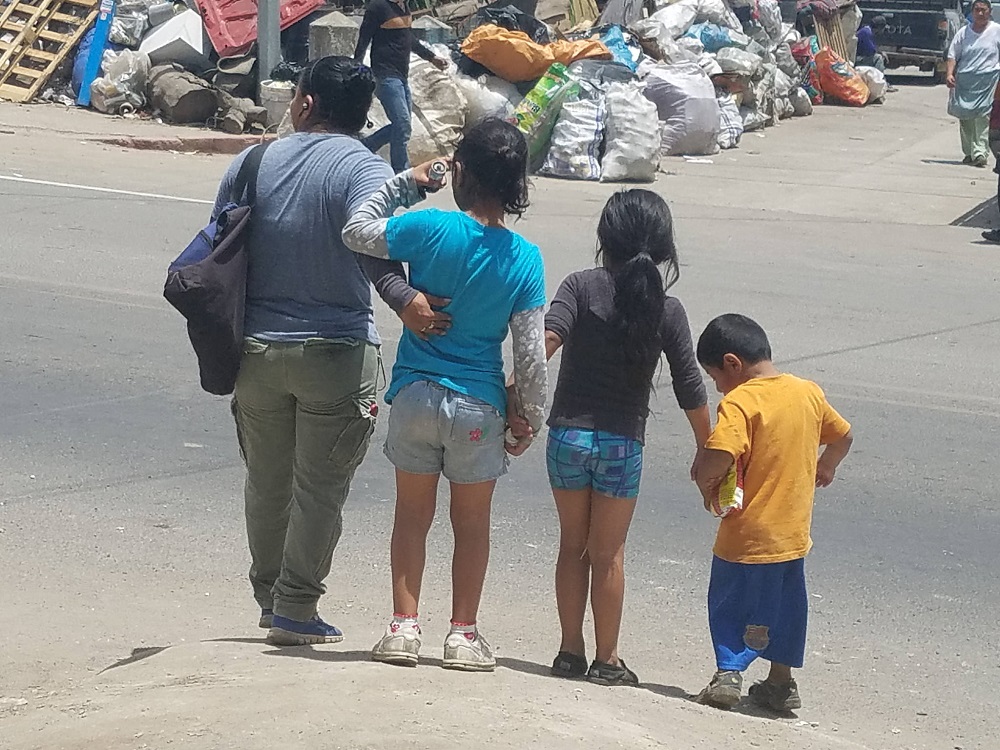
Two decades of work in Guatemala has taught us the complexity of orphan care and family preservation. Seeing the immediate and real needs of young women and children in 2000 brought us to Guatemala, but understanding the many social realities of orphan care kept us here and expanded our work. Through our continued work and presence, we foster opportunities for the redemption of precious lives throughout Guatemala.
The Dorie’s Promise Redemptive Story is three-fold: Preserve families on the brink of crisis. Care for orphaned and abandoned children residing in orphanages. Transform the lives of children living at Dorie’s Promise.
This is the first post in our Dorie’s Promise Redemptive Story series:
Preserving Families in Rural Communities.
 Each summer, hundreds of visitors join us as members of missions teams. Consistently, we hear the same feedback as we visit rural communities—the country is so beautiful but the people have so little. As they ride on our bus through narrow dirt roads, team members admire the mountains and fields surrounding clusters of small homes. The natural beauty stands in contrast to the often small, cobbled together homes we visit.
Each summer, hundreds of visitors join us as members of missions teams. Consistently, we hear the same feedback as we visit rural communities—the country is so beautiful but the people have so little. As they ride on our bus through narrow dirt roads, team members admire the mountains and fields surrounding clusters of small homes. The natural beauty stands in contrast to the often small, cobbled together homes we visit.
At first glance, many visitors are shocked by the tin and wood homes we visit. The simple one or two room buildings are quite different than the homes visitors left behind in America a few days earlier. Even in larger villages, small tin homes are scattered between, behind, or just beyond the larger concrete structures. Although small and simple, teams always experience warm hospitality from the families we serve.
 Similar stories are told by the rural families we serve. Unlike what you may expect, these are hardworking families where at least one parent, if not both, is employed full-time. Many spend long hours 6 or 7 days a week working on produce farms or in other agricultural services. They plant, weed, and harvest vegetables in season, laboring in the sun for hours each day. Farms with tomatoes, corn, coffee, and cattle dot the landscape.
Similar stories are told by the rural families we serve. Unlike what you may expect, these are hardworking families where at least one parent, if not both, is employed full-time. Many spend long hours 6 or 7 days a week working on produce farms or in other agricultural services. They plant, weed, and harvest vegetables in season, laboring in the sun for hours each day. Farms with tomatoes, corn, coffee, and cattle dot the landscape.
Those not working on farms often venture into the small stores lining the streets to work or fill positions with local governments. These village economies are similar to those in America, less one important difference. The gap between the lower and upper classes is extremely wide in Guatemala. Those in rural villages lack opportunities to improve their social status and upward mobility is almost non-existent.
 Poverty, hardships, and the lack of opportunities can cause families to make the devastating decision to relinquish care of their children.
Poverty, hardships, and the lack of opportunities can cause families to make the devastating decision to relinquish care of their children.
Imagine their decision: They love their children, but no matter how many hours they spend picking tomatoes, money is scarce. Some nights they go to bed hungry. If there’s money left over, maybe they can afford school uniforms so their kids can attend classes. If not, another helper in the field means more money, and more money means more food and more bills get paid.
In the worst cases, parents make the most loving choice available—they seek help from someone else to care for their children. No one wants their child to be hungry, dirty, or uneducated. Sometimes family members can help, but some families are forced to seek assistance through the family court.
These are families who have experienced crisis and need help.
 Our goal is to help preserve families in rural village whenever possible. Together with our community partners, we identify families on the verge of crisis who need practical, tangible assistance. Simple projects make a significant difference to these families. Our teams provide funding for projects and partner with local labor to help stabilize families. We build houses, pour concrete floors, build wood cooking stoves, and provide needed food and household items.
Our goal is to help preserve families in rural village whenever possible. Together with our community partners, we identify families on the verge of crisis who need practical, tangible assistance. Simple projects make a significant difference to these families. Our teams provide funding for projects and partner with local labor to help stabilize families. We build houses, pour concrete floors, build wood cooking stoves, and provide needed food and household items.
Although these items seem small, they make a real difference for families. A new house provides security and stability. Concrete floors and properly-ventilated stoves improve the health of families. Food baskets provide meals immediately. We cannot single-handedly change the economies in rural villages but we can offer assistance and relief for families. Most importantly, even after teams leave and projects are finished, our staff remains in contact with families.
We work to preserve families on the brink of crisis and strengthen communities. Strong communities build strong families.